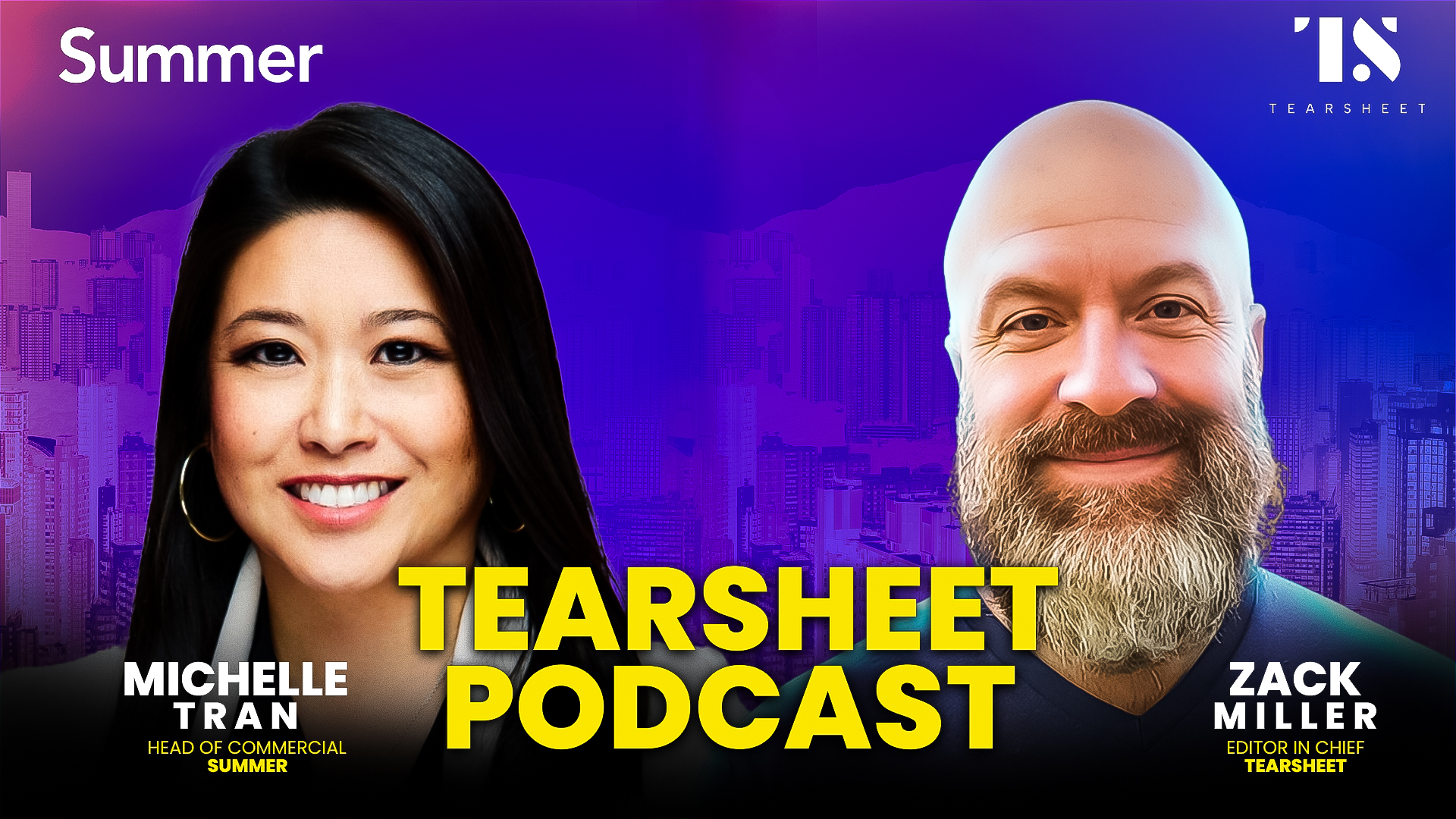Smart Tech, Smarter Loans: Michelle Tran on fintech’s impact on student debt
- Michelle Tran, head of commercial at Summer and founder of NYC FinTech Women, shares insights on tackling the student debt crisis through workplace benefit programs.
- Tran discusses streamlining loan forgiveness, the evolution of employer benefits, and her journey building a community of 15,000 fintech professionals dedicated to amplifying women's voices in the industry.

Student debt is a major financial challenge, with U.S. borrowers owing over $1.8 trillion in total. This ongoing debt burden affects millions of individuals. Traditional financial institutions are looking for ways to solve this issue. Meanwhile, fintech innovations are providing solutions. These new technologies are helping to address the problem.
Michelle Tran is the head of commercial at Summer and founder of NYC Fintech Women. She joins the Tearsheet podcast to discuss how fintech is streamlining student loan repayment. The conversation focuses on the improvements fintech brings to the process, highlighting how fintech is powering a new generation of financial wellness programs.
“For many borrowers, navigating student loan repayment is like filing taxes on their own,” Tran explains. “The process is complicated. And a simple mistake can lead to missed opportunities for debt relief.”
Tran highlights how fintech platforms like Summer act as a “TurboTax for student loans,” helping borrowers complete complex federal student loan relief applications accurately. There is a growing demand for employer-sponsored loan repayment benefits. Fintech solutions are helping connect employees with the right programs. These solutions play an essential role in meeting that demand.
Employers and Student Loan Benefits: A Growing Trend
Employers are increasingly incorporating student loan repayment programs into their benefits packages. According to Tran, over 50% of employees are asking for loan assistance. Yet, less than 10% of employers currently offer such benefits. “The trend is shifting,” Tran notes. “We’re seeing companies of all sizes. Whether a private practice with 20 employees or a large tech firm. They start offering student debt relief as a retention tool.” With fintech solutions, companies can integrate loan repayment into payroll systems. This makes it easier for employees to access benefits. Some employers now match student loan payments with contributions to retirement plans.
Role of Federal Student Loan Relief Programs
Federal programs like Public Service Loan Forgiveness (PSLF) offer relief to borrowers. These programs are specifically for those working in public service sectors. They provide significant financial help to ease the burden. But, the application process remains complex, leading to high rejection rates. “Over 92% of people who apply for PSLF on their own make errors,” Tran states. “That’s where fintech comes in—we automate the process and ensure accuracy.” Fintech platforms streamline federal student loan relief applications. They help borrowers maximize their eligibility for help. This reduces their long-term financial burden.
Fintech’s Approach to Debt Management
Beyond student loans, fintech companies are addressing broader debt management challenges. Credit card debt, for example, often accumulates due to promotional offers. These later turn into high-interest balances. “Debt is easy to accrue but hard to manage,” Tran points out. “Fintech solutions can provide tools that help borrowers track payments. They can optimize repayment strategies, and avoid unnecessary interest.” Fintech companies offer financial wellness programs to users. These programs teach effective budgeting, credit management, and long-term planning. They help users improve their financial skills.
The Big Ideas
- Employers Are Becoming Key Players in Student Debt Relief. “Graduates are considering job offers carefully. They are looking for companies that offer student loan repayment assistance. This benefit is becoming a key factor in their decision-making.”
- Federal Loan Forgiveness Programs Are Underutilized. “Many borrowers don’t realize they qualify for loan forgiveness. Fintech is helping them access these benefits more efficiently.”
- Technology Reduces Errors in Loan Applications. “Automation ensures borrowers submit accurate applications, increasing approval rates for federal programs.”
- Fintech Solutions Are Expanding Beyond Student Loans. “Managing debt holistically creates a more secure financial future. The debt includes credit cards and retirement savings.”
- Personal Finance Education is a Critical Component. “Helping borrowers understand their financial options leads to better decision-making and long-term stability.”
Listen to the full episode



